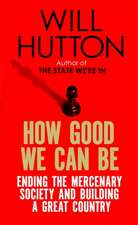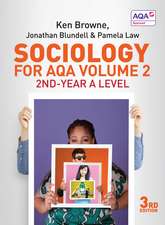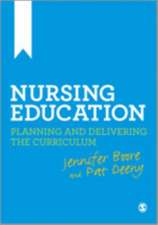Beyond Inclusion: The Practice of Equal Access in Indian Higher Education
Editat de Satish Deshpande, Usha Zachariasen Limba Engleză Paperback – 21 ian 2016
Offering new perspectives on the debates on social mobility and merit, this volume examines a broad spectrum of educational courses, ranging from engineering, medicine and sciences to social work, humanities and the social sciences that cover all levels of higher education from undergraduate degrees to post-doctoral research. It points to various sources of social exclusion by studying a cross-section of national, elite, subaltern, and sub-regional institutions across the states of Rajasthan, Gujarat, Jharkhand, Uttar Pradesh, Punjab, Kerala, and Tamil Nadu. Closely involved with the implementation and evaluation of affirmative action programmes, the contributors to the volume highlight the paradoxical ‘sectionalisation’ of reserved candidates, the daunting challenge of combating discrimination.
Understanding the need to look beyond formal inclusion to enable substantive change, this important volume will be essential reading for scholars and teachers of sociology, education, social work, economics, public administration, and political science, besides being of great interest to policymakers and organisations concerned with education and discrimination.
| Toate formatele și edițiile | Preț | Express |
|---|---|---|
| Paperback (1) | 449.41 lei 43-57 zile | |
| Taylor & Francis – 21 ian 2016 | 449.41 lei 43-57 zile | |
| Hardback (1) | 1004.55 lei 43-57 zile | |
| Taylor & Francis – 18 apr 2013 | 1004.55 lei 43-57 zile |
Preț: 449.41 lei
Nou
Puncte Express: 674
Preț estimativ în valută:
85.99€ • 90.03$ • 71.15£
85.99€ • 90.03$ • 71.15£
Carte tipărită la comandă
Livrare economică 07-21 aprilie
Preluare comenzi: 021 569.72.76
Specificații
ISBN-13: 9781138660342
ISBN-10: 1138660345
Pagini: 352
Dimensiuni: 138 x 216 x 19 mm
Greutate: 0.45 kg
Ediția:1
Editura: Taylor & Francis
Colecția Routledge India
Locul publicării:Oxford, United Kingdom
ISBN-10: 1138660345
Pagini: 352
Dimensiuni: 138 x 216 x 19 mm
Greutate: 0.45 kg
Ediția:1
Editura: Taylor & Francis
Colecția Routledge India
Locul publicării:Oxford, United Kingdom
Public țintă
PostgraduateCuprins
List of Tables and Figures. Preface. Acknowledgements. Introduction: Beyond Inclusion Satish Deshpande. 1. Caste Quotas and Formal Inclusion in Indian Higher Education Satish Deshpande 2. The Polarity between the ‘Few and the Many’ in Indian Higher Education Mrinalini Sebastian 3. Affirmative Action in Three Dream Institutions Ganesh Devy 4. Reservations in Medical Education in Maharashtra: An Empirical Study Vandana Dandekar 5. Bridging the Rural–Urban Gap: Experiments in Engineering Education in Punjab Ranjit Singh Ghuman and Davinder Kumar Madaan 6. Defying the Odds: The Triumphs and Tragedies of Dalit and Adivasi Students in Higher Education Anoop Kumar Singh 7. Quota’s Children: The Perils of Getting Educated N. Sukumar 8. Beyond Contested Categories: An Experiment of the Ford Foundation International Fellowships Programme for Social Return through Affirmative Action Sony Pellissery, Vivek Mansukhani and Neera Handa 9. Confronting Social Exclusion: A Critical Review of the CREST Experience D. D. Nampoothiri 10. To Race with the Able? Soft Skills and the Psychologisation of Marginality Usha Anna Zacharias. About the Editors. Notes on Contributors. Index
Descriere
Based on first-hand accounts of educationists involved in the implementation and evaluation of affirmative action programmes in higher education in India, Beyond Inclusion examines the practice of formal inclusion by focusing on the difficulties in achieving social justice and the persistence of discrimination based on caste, tribe, gender, and rural location.











